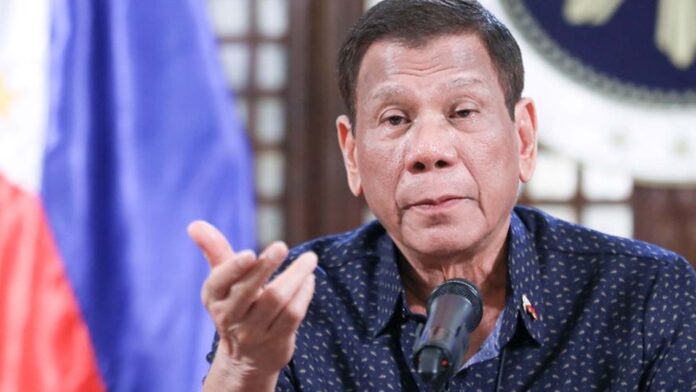The implementation of the National Identification (ID) System could have prevented issues in the distribution of cash and food subsidies for low-income families amid the coronavirus disease (Covid-19) pandemic, President Rodrigo Duterte said late Monday night.
In a meeting with members of the Inter-Agency Task Force for the Management of Emerging Infectious Diseases (IATF-EID), Duterte lamented how the national ID system could not be fully implemented because of opposition from left-leaning groups.
“Noon pa sinabi namin ‘yung national ID makatulong. Ang problema nito ang proponent na ayaw or the proponents of the ‘don’t’, itong mga left. Kaya kita mo ngayon wala tayong ID system until now (Long ago, we already said that the national ID would be helpful. The problem is the proponents of the ‘don’t’ are the left. That’s why look, we don’t have an ID system until now),” he said.
Duterte said that with the national ID system in place, the government could have avoided problems with the lists of cash and food aid beneficiaries.
It would have been easier to ask the Department of the Interior and Local Government (DILG) to identify how many people lived in a certain barangay (village), he added.
“All we have to do — ang kailangan lang namin tanungin namin ‘yung DILG, ilang tao ‘yung barangay na ‘yan, then isi — ipadala namin ‘yung pagkain at kunin na lang ninyo doon sa tindahan ninyo or the disposal point wherever it is, ipakita mo ‘yung card mo, ibigay sa iyo (If we had an ID system, we could have (is we would just ask the DILG how many people live in that barangay. Then we will send the food and you will get it from the store or the disposal point, wherever it is. Just show your card, and they will give it to you),” he added.
He said people should not blame the government if they are not on DILG’s list of beneficiaries, stressing that either they did not want to be listed or were living in another barangay.
Meanwhile, he also vowed to ensure that no Filipino would die of hunger.
“Gusto ko lahat mabigyan. Ayaw kong may mamatay ni isang Pilipino na gutom (I want everyone to receive assistance. I don’t want even a single Filipino to die of hunger),” he said.
He also urged local officials, particularly mayors and barangay captains, to ensure that government assistance would be given to all beneficiaries.
“That is your duty, inyong duty ‘yan and the mayors to determine sino ‘yang hindi nasali sa listahan at mabigyan kaagad (That’s your duty and mayors to determine who is not on the list so they can also be given aid),” he said.
He said local officials should “reach out” to households in the periphery of their respective barangays.
“Sometimes you have to walk about 5 or about 2 km sa bukid (in the farm), that is the average between one house from another. We have to reach out to them and this can only be done if the mayor, municipal or city orders it and the barangay captains follow the order,” he said.
Under the Bayanihan to Heal as One law or Republic Act No. 11469, the government has set aside a PHP200-billion emergency subsidy for about 18 million low-income families affected by the enhanced community quarantine (ECQ) of Luzon.
These low-income households will be receiving financial assistance between PHP5,000 and PHP8,000 for the months of April and May.
However, there have been delays in the distribution of cash aid due to discrepancies in the lists of beneficiaries and other problems.
Duterte signed the Philippine Identification System Act or Republic Act No. 11055 in August 2018 to create a single official identification card for all citizens that would interconnect government-issued IDs.
The government started pilot testing the national ID system last year, which originally was set to run up to June this year before formally rolling out the project in July next year. However, pilot testing was stopped due to the quarantine measures in place. (PNA)


